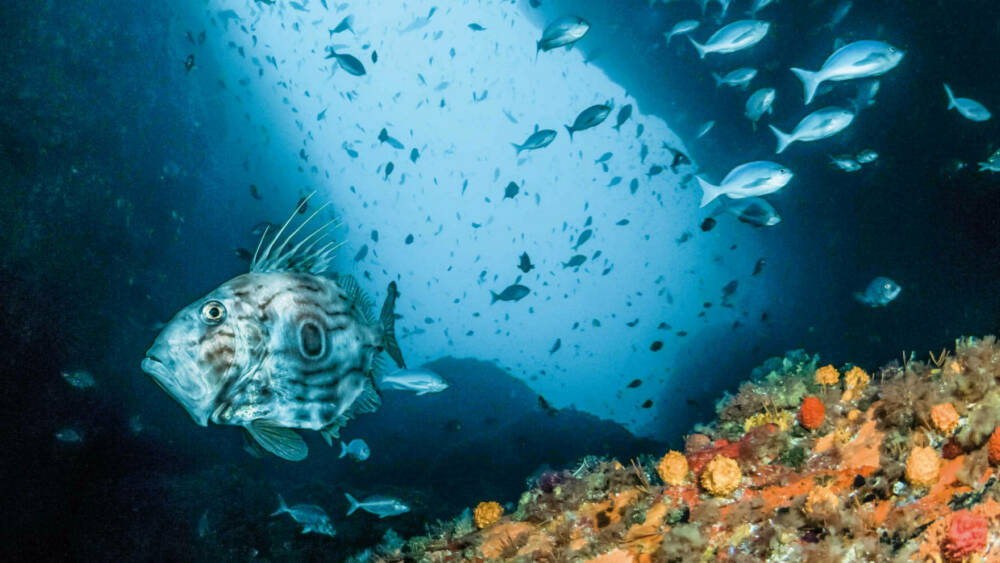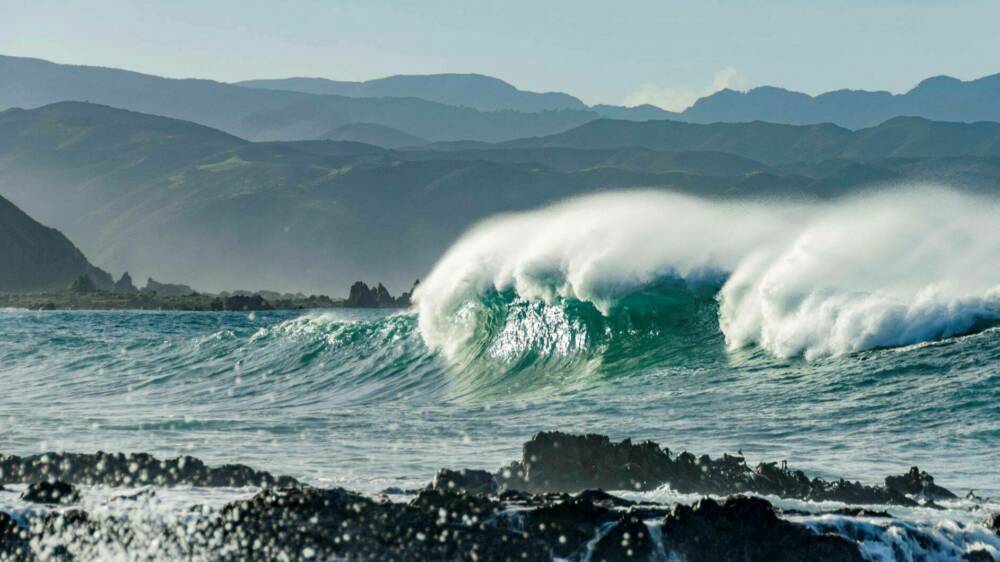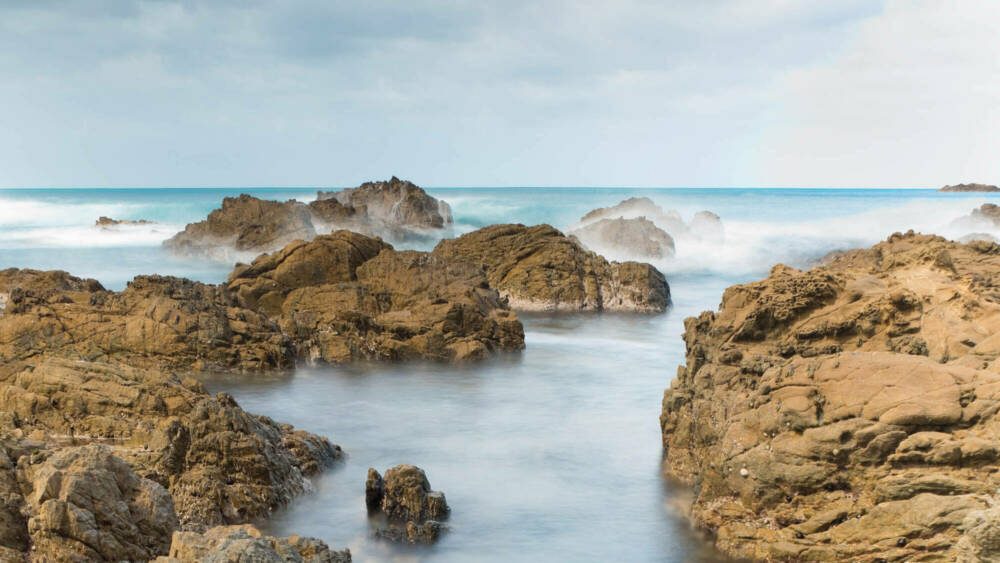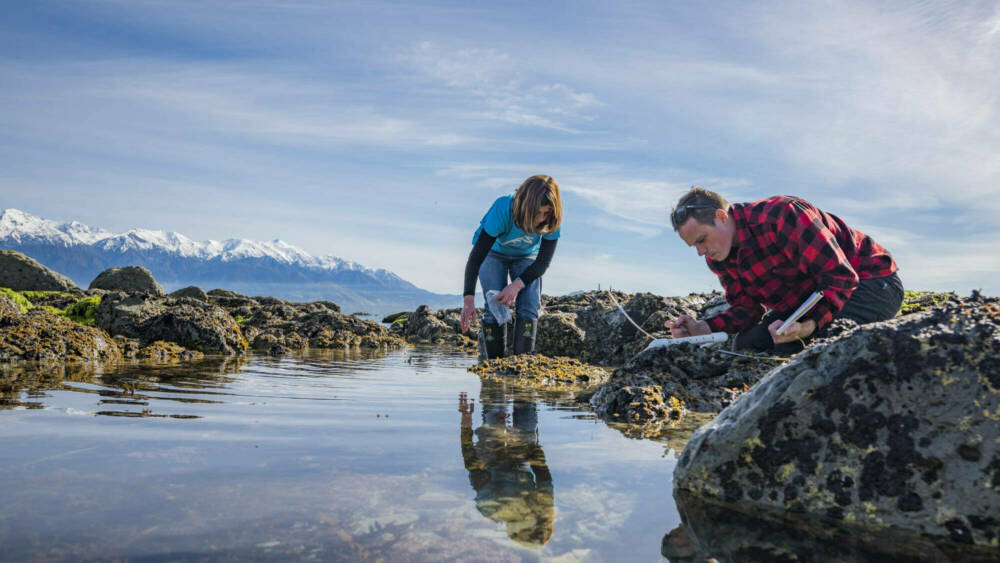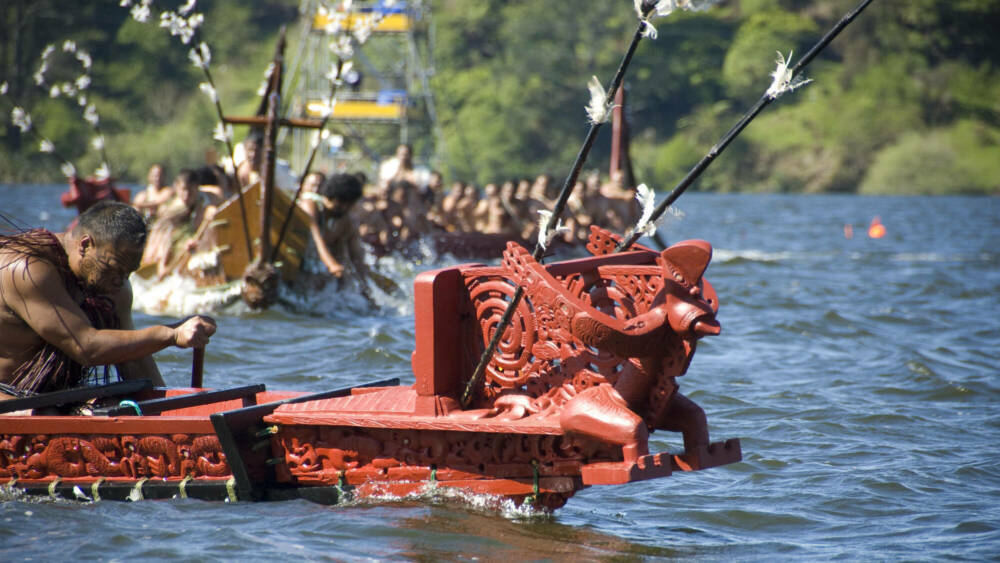Sustainable Seas National Science Challenge / Ko ngā moana whakauka
There are many and growing uses of Aotearoa New Zealand’s marine environment – some of which are competing. This research addresses the question: How can Aotearoa New Zealand best develop its marine economy, while protecting the taonga / treasure of that marine environment?

Background
Sustainable seas are essential for Aotearoa New Zealand’s health and wealth. However, there is a growing conflict between the many uses of the marine environment
Ecosystem-based management (EBM) is a holistic and inclusive way to manage marine environments and competing uses, demands, and values. This means that competing uses are managed so they do not degrade the marine environment.
Aotearoa New Zealand’s marine resources include fisheries, aquaculture, tourism, oil and gas, minerals, renewable energy, shipping and more. Three-quarters of New Zealanders live within 10 km of the coast, and Māori connections with the sea are particularly strong.
Programme details
The vision of the Sustainable Seas Challenge is for Aotearoa New Zealand to have healthy marine ecosystems that provide value for all New Zealanders. It brings together around 250 ecologists, social scientists, economists, and experts in mātauranga Māori and policy from about 40 organisations across the country.
Its research focuses on improving marine resource decision-making and the health of the seas through EBM, and transforming Aotearoa New Zealand’s ability to enhance its marine economy into a blue economy.
This programme is now in phase II with a mix of regional and national projects due for completion by 2024. It focuses on Tangaroa, degradation and recovery, the blue economy, risk and uncertainty, and EBM.
What they hope to achieve
The knowledge and tools being developed will assist marine resource managers, Māori, industry, and communities to assess impacts on marine ecosystems and associated resources, activities, values, and cultural significance.

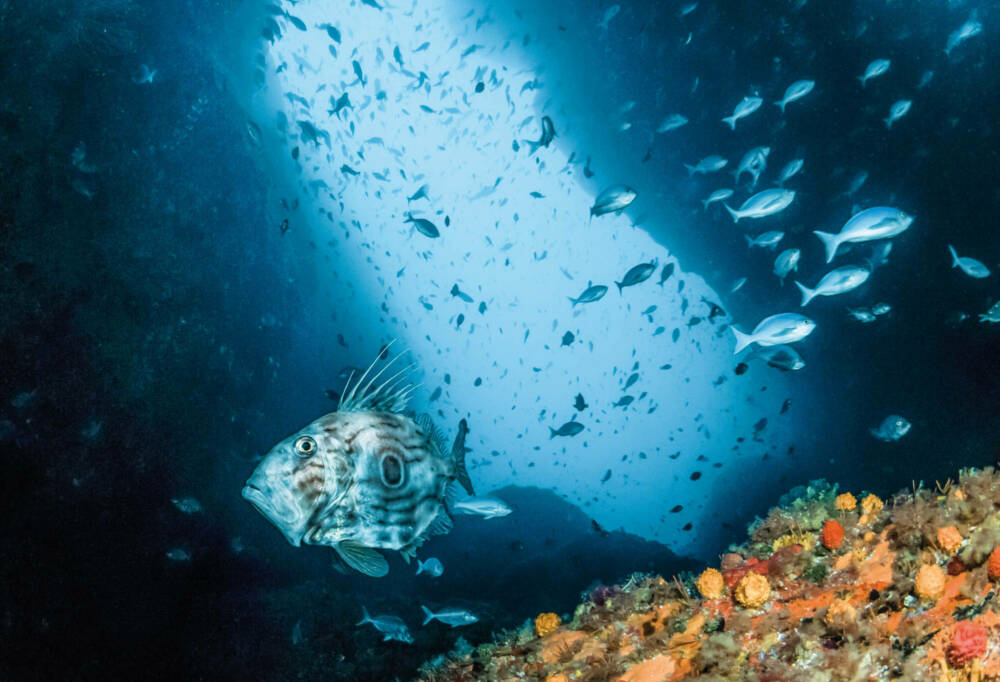
Resource

